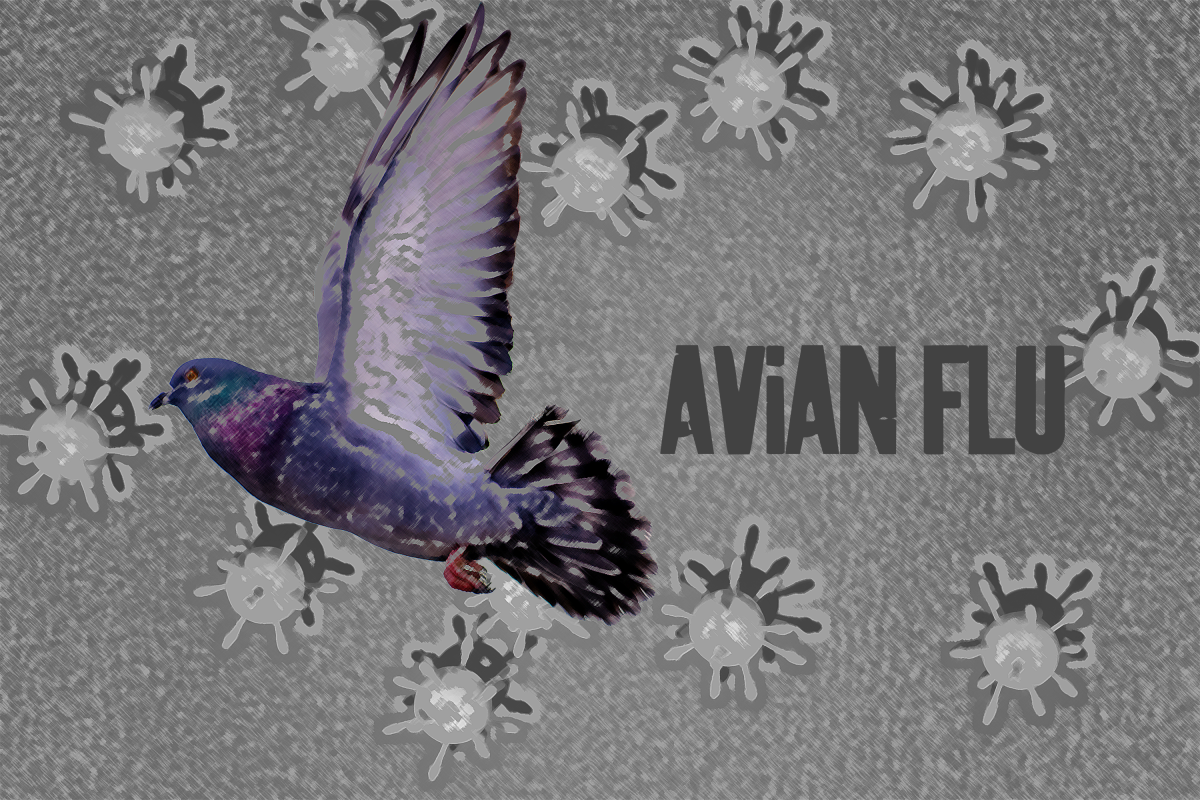An epidemic is gripping the country — this time, birds are affected.
An outbreak of avian influenza, better known as bird flu, is currently affecting the United States. The outbreak started when wild birds transmitted the illness to domestic poultry animals, said Dr. Martin Ficken, director of the Texas A&M Veterinary Medical Diagnostic Laboratory’s Gonzales site.
“[Bird flu] follows the migratory path where these wild birds go, mainly dabbling ducks, and they carry the virus around,” Ficken said. “This outbreak is slightly different from the one back in 2014 and 2015 … once it gets into transmission, particularly in turkeys and chicken, it spreads very quickly and causes high morbidity and mortality.”
Raised costs of certain grocery goods, such as eggs and meat, can be attributed largely to the outbreak, associate professor of poultry science Gregory Archer, Ph.D., said.
“It’s caused price increases,” Archer said. “For example, eggs have grown in price by three times.”
To prevent further transmission of bird flu, Ficken said domestic bird owners should take steps to limit their birds’ contact with wild birds or the places they pass through.
“The thing that’s problematic with this particular outbreak is that it’s in the environment,” Ficken said. “Any time you have a body of water or land where fowl migrate through, there’s always the potential the virus will be in the environment … it can be very easy to walk into something, unknowingly, in a park, and walk it back into your farm.”
The A&M department of poultry science is currently working with farmers and the U.S. Department of Agriculture to develop methods to control the spread of bird flu, associate professor of poultry science Morgan Farnell, Ph.D., said.
“We have people who are trained to respond to these outbreaks,” Farnell said. “How to properly cull these birds humanely, how to get rid of carcasses and animal waste to contain the disease. As far as what Texas A&M is doing, a lot of it is education. I have a program looking at farm biosecurity and we’re gonna go out and visit with industry to talk about some of their strategies.”
In the past, bird flu infections in humans have been exceptionally rare, Farnell said.
“There have been about 400 deaths [worldwide] in the past 15 years from avian influenza,” Farnell said. “That’s not very much considering the world population. If you look at the garden variety flu, pre-COVID[-19], you’re looking at losing 35,000 to 36,000 people a year in just the U.S.”
While the outbreak’s intensity is declining, Archer said recent cross-transmissions of bird flu into mammals have caused some concern.
“There’s been some reports of a few mammals in North America testing positive,” Archer said. “In humans, it hasn’t disbursed in the past 20 to 30 years, except in isolated cases. Right now it hasn’t, but just because it hasn’t yet doesn’t mean it isn’t going to.”
A&M students, Ficken said, do not need to take preventative measures against bird flu unless they happen to work with poultry at the current moment.
“As far as your own health, no,” Ficken said. “Day to day living, consumption of poultry meat and eggs, the risk [of infection] is essentially zero. Nothing is ever completely zero, but as far as your day-to-day living goes, there’s nothing to be concerned about.”




















